Russia-India: Still a strategic partnership?
The two nations should take a clear-eyed review of the current state of their ties with an emphasis on intensifying dialogue in the new sectors.
 Courtesy: Shutterstock
Courtesy: Shutterstock
The two nations should take a clear-eyed review of the current state of their ties with an emphasis on intensifying dialogue in the new sectors.
 Courtesy: BRICS Forum - India 2021
Courtesy: BRICS Forum - India 2021
The 13th BRICS summit will be held virtually on 9 September 2021 and India is the host. The grouping has managed to hold its ground in an era of increasingly complex geopolitics. While immediate goals are important, in the longer term it must cooperate on counter terrorism, improve trade and work towards the Sustainable Development Goals.
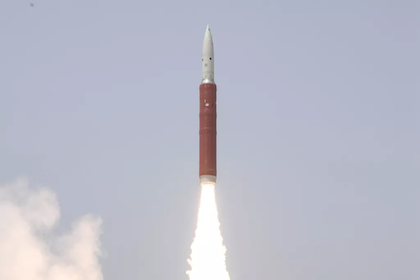 Courtesy: Press Information Bureau, Government of India
Courtesy: Press Information Bureau, Government of India
As the private or autonomous space industry becomes more developed, an interesting phenomena is occurring. The public sector which runs space programmes has lagged behind, but also profits from the recent success of private space companies are limited to direct stakeholders. After a decade of private investment, it is worth assessing why countries like the U.S., Russia, China and India have pursued independence from government entities in space over the last decade.
 Courtesy: Shutterstock
Courtesy: Shutterstock
For years, Western countries have used sanctions as a means of economic warfare against their adversaries. Now, China and Russia are utilising the same tactic against the West. The United Nations Security Council is paralysed by differences between the five permanent members, leaving the tools of unilateral sanctions and counter-sanctions to proliferate at the cost of UN-approved multilateral sanctions.
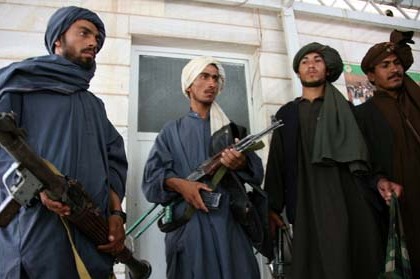 Courtesy: Flickr/ResoluteSupportMedia
Courtesy: Flickr/ResoluteSupportMedia
The Russians have concluded that the Afghan Taliban offer a better shield against the Islamic State than the old Northern Alliance. A negotiated settlement in Afghanistan could be achieved if Washington and New Delhi join Moscow, Beijing, Islamabad and Tehran in a joint effort.
Aleppo is back under the control of the Syrian government, the Russian ambassador to Ankara is assassinated for his country’s role in Syria, and U.S. President-elect Donald Trump wants to cooperate with Russia to fight ISIS in Syria. These momentous events in modern history compel an assessment of the geopolitics surrounding Syria.
 Courtesy: Forum 2000
Courtesy: Forum 2000
The Forum 2000 conference in Prague last week was an occasion to reflect on the challenges facing democracy in an economically globalised, but socially fragmented, West.
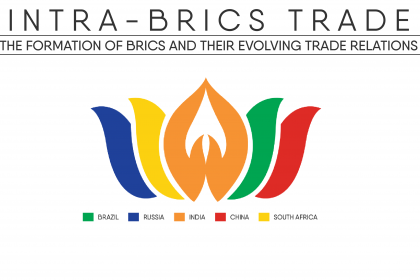 Courtesy: Gateway House
Courtesy: Gateway House
This infographic seeks to trace the evolution of BRICS from O’Neill’s original vision to its current form, while illustrating how intra-BRICS trade has evolved over the past 15 years.
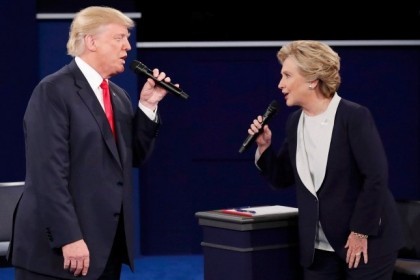 Courtesy: Reuters
Courtesy: Reuters
This excerpt was transcribed from The Gateway House Podcast episode, 'U.S. Elections: Trump’s down but not out' which is part of the special miniseries on the U.S. election and its foreign policy implications. In the episode, Ambassador Neelam Deo discussed the larger foreign policy implications mentioned by the presidential candidates at the second Presidential debate on Sunday night
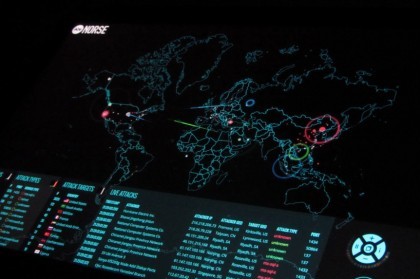 Courtesy: Christiaan Colen / Flickr
Courtesy: Christiaan Colen / Flickr
The recent cyber attack on Ukraine’s power grids is indicative of the cyber space becoming the most useful tool for perpetuating geopolitical rivalries. Many countries are rapidly expanding their offensive cyber capabilities, and it appears the militarisation of cyber space is complete.